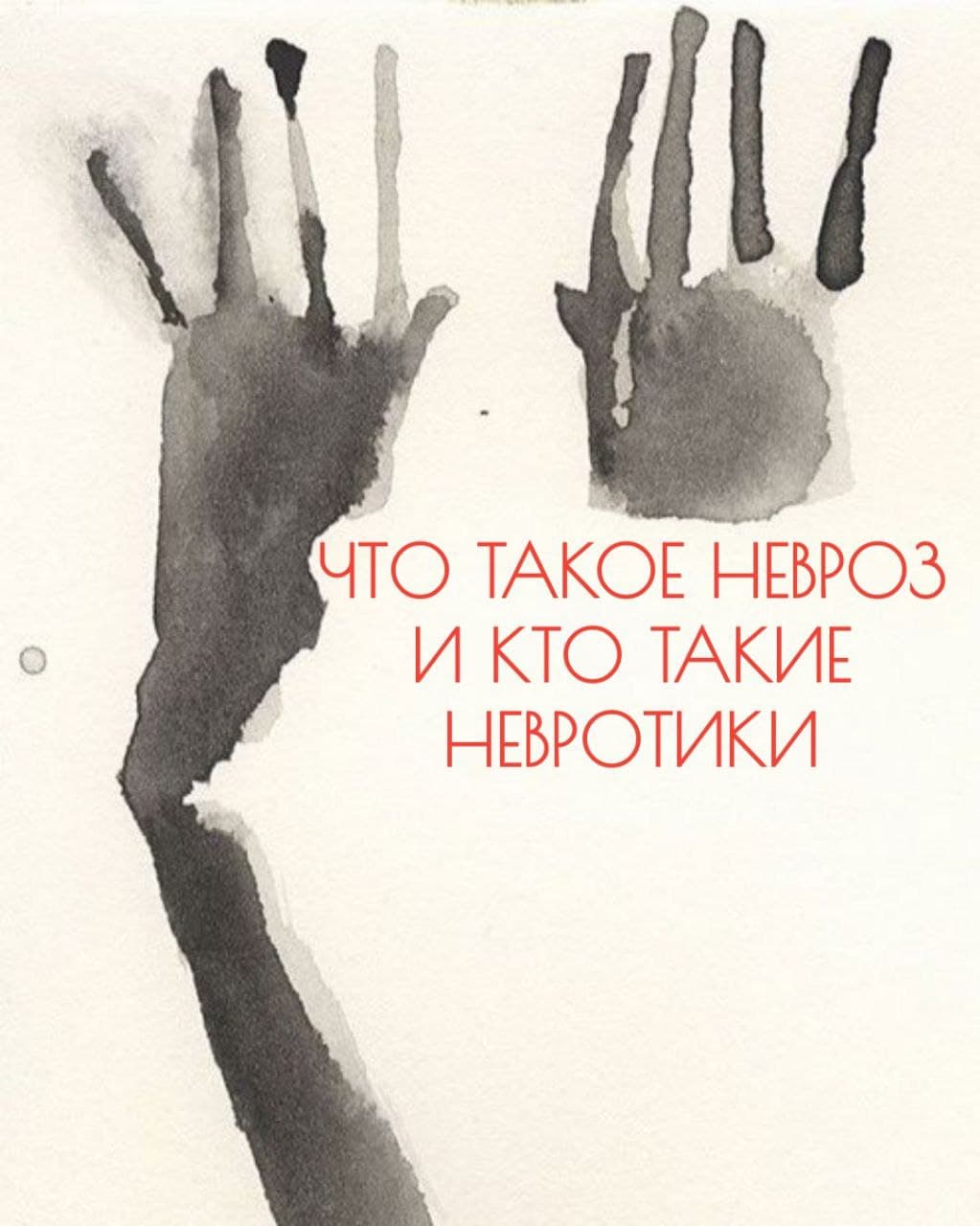
@omprograms
Uncertainty is almost inevitable and, in a way, even a familiar part of our lives. But when the level of uncertainty is high, it can affect a whole range of important aspects of our lives.
If they tell you that tramal drugs do not have a quick addictive effect, don't believe them. Yes, they do. Just what three weeks of regular use and, if you are not an addict with a long history, you will have the opportunity to significantly expand your life experience, understand what it is withdrawal syndrome, and feel with absolute clarity why it is called "withdrawal". My idea of withdrawal was drawn from Bulgakov's Morphine, Crowley's Diary of an Addict, the movie Needle, and Vetrinsky's song, which may not be about withdrawal itself, but it is so and guessed behind this "bald and wet" gorgetochka and poisoning with boulevard dampness. No, no, it's not that dramatic. There were no voices, no old woman with a pitchfork in a mottled skirt, no other horrors. In the complete absence of gorzhetochka and boulevard dampness, the poisoning, as well as the other symptoms of the mysterious "flu", which does not resemble anything and nurofen is not amenable to, were memorized in my mind and body and now will not be confused with anything. Because, as it often happens, practical training is more effective than theoretical knowledge. Fear still crawls, crawling with a hundred tiny paws between my shoulder blades. Fear, because I clearly realize that I had no options, in the sense of not drinking this crap.
What a strange thing pain is. At first it feels like it hurts in one place, like my leg, even if it hurts a lot, you are separate and the pain is separate. Gradually the pain takes over, spreading through my body and mind and becoming like a part of me. At the peak of the pain, it even feels like the essence to me. This must be what schizophrenia looks like. As if there is me and there is pain that can first become part of me and then crowd out the rest of me.
I am reminded of a patient, a young man we were shown at the institute in a psychiatry class. He was 28 years old, but he looked 18. That's often the case with schizophrenic patients. He described what was happening to him very vividly. "It seems to me," he said, "that there's a substance (he described it in detail) that I share a brain with. And it's taking over more and more." It was a remarkably accurate metaphor for what was happening to him. He was describing how gradually parts of his life were dying off. He was a fine pianist, he gave concerts, he had many friends, he loved to read. But gradually he stopped playing altogether, he couldn't perform, then he started playing less often at home, then he stopped coming to the instrument at all, he couldn't. The same thing happened with other aspects of his life, which narrowed down to fighting Substance and interacting with doctors. The doctors couldn't help him much and were pessimistic. He was very likeable and I felt a pinch of pity for him.
It's like that with pain. Pain has different masks. But they're all a little bit too much. And sometimes a little too much. Your consciousness narrows and you don't care. You just want it to end, you just want it to end. Any way. I don't care how. Last time, I seriously considered biting my wrists. It's an idiotic thought, but that's not what I'm talking about. I'm talking about the experience of being completely narrow-minded. My little son, my daughters, my husband...It's not that I've forgotten about them, it's just that they're pushed to the periphery of consciousness by this giant bastard pain that dictates how to act. The pain is taking over. I imagine myself as the hero of Shelley's paintings. I think he would have perfectly understood the squirming and jaggedness that is me now.
This boring pin like iron with jagged edges digging into my thigh and shin and twisting into them, is unlivable and responds very poorly to mountains of pills. It simply must be destroyed. And yet this bastard is a part of me. It's physically inside me. Maybe that's how people go crazy. Maybe it's like the vital longing of depression. The kind of heartache that drives people to suicide? Either way, it's clearly not mentally normal. And the patient is what's called unavailable. I think I understand my depressed patients a little better. So from a professional point of view, I'm curious.
There are other useful consequences of this situation, expanding my experience, so to speak. For example, I started to swear, and I do it freely and with pleasure. And I also realized what it means to be shturting, almost literally, especially when the effect of the anesthetic passes, and it completely passes in exactly a few hours (you can check your watch) and the intensity of the pain becomes unbearable. I also seem to have figured out roughly what coming is. In the narcotic sense of the word. Because when a bunch of these drugs finally starts to act, the pain is slightly released and from a pin - iron turns into a hand clutching my thigh and shin, I feel really short-term, only for half an hour, pain relief and such a sweet bliss. I wish I knew what kind of "flu" it would bring! The nasty pain could not be controlled, and the case, by all appearances, is moving towards the second operation in small but very confident steps.
I'm curious how it will be this time. Last time, it was some kind of action turning into tragicomedy (fortunately more comedy than tragic) by all the rules of the genre, including drugs and a private plane (medevac). Well, there was no action in the drugs; they were just injected in an attempt to create a brief period when I wasn't staring at my veins, contemplating how to bite through them, that is, to restore islands of normalcy in my pain-ravaged mind. But the plane was real, medical, with a paramedic and IVs. And they actually transferred me there from the ambulance, which drove with flashing lights right onto the airfield. All the way, the paramedic tried to treat me a little, but fortunately, it wasn't necessary. We flew cheerfully, me lying down, and my husband, son, and daughter sitting. Our family and the paramedic filled the entire cabin. A cozy little plane with a real flight attendant and even breakfast, which, as expected, was offered to us during the flight.
We actually come here often, both as a family and individually. The last one before this flight was my middle daughter. She liked the museum the most, where there were several halls with tours led by people with various disabilities. For example, there was a hall of blindness. Visitors were offered to wear a special blindfold, making them blind, and spend an hour like that. The tour was led by a blind guide. There was also a hall of old age. Visitors wore shackles on their legs and some weights on their hands because it's harder to move in old age. The tour of this hall was led by a 98-year-old person. My daughter liked it so much that she decided to move to Holon in her old age and work in that museum in the old age hall. It's a good idea.
But it was a bit early to talk about a career as a tour guide in the museum of old age, and we flew in for a completely different reason. Although the trip started with flashers, we had a very smooth flight.
But in the clinic, it was a real adventure. First, the surgery was scheduled for 5 o'clock. We were strictly told to arrive early because the anesthesiologist was supposed to see me at 4. But at 4, he didn’t come. Instead, a nurse came in, asking how we planned to do this (and she named a completely different) surgery without special tests. I said, "But it’s going to be a small operation, we agreed with surgeon Merkulis." The nurse replied, "Not at all. Here’s your chart. Surgeon Rublis will be operating on you. And it’s a major surgery." She said this and left. I was left in the room. I would have run away if I could stand up, but I couldn’t, so I stayed there, completely bewildered, slipping into panic. The anesthesiologist didn’t come at 4, nor at 5, nor 6, nor even at 7. But surgeon Merkulis suddenly dashed in (his demeanor suggesting he was there for just a moment): "Don’t worry," he said, "whatever’s written in the chart isn’t true, I’ll be operating, I’ll just cut a little bit, and Rublis is just listed there for show. We’ll take you now." And he dashed out. I calmed down a bit, though I was still confused. And my medical background required a conversation with the anesthesiologist. I called the nurse, "Where’s the anesthesiologist?" I asked. "The anesthesiologist," she answered, "is in the operating room, working," replying as if I were asking to pull the anesthesiologist away from work for some nonsense. "No," I said, "this won’t do, I want to talk to the anesthesiologist before the surgery." Less than two hours later, the anesthesiologist rushed into the room, tossing two little blue pills onto the bedside table as he entered. "Here," he said, "take these, I have to go." I asked, "What’s this?" "This is Valium, you’re nervous." "I don’t need Valium; I need to talk to the anesthesiologist," I insisted. "No," he replied, "I can’t talk, I just popped out of the operating room for five minutes to give you Valium," and he dashed off, presumably back to the operating room.
Everything happened so quickly that, if not for the two pills turning blue on the surface of the bedside table, one might think it was a dream. Meanwhile, it was already 9 PM, I was lying in the room on a quite comfortable bed, with monitors, blood pressure cuffs, and oxygen hanging over me, reminding me I was in a hospital. My husband was desperately reading me poems. There was no hint of surgery or even the anesthesiologist.
At 11pm, the nurse finally comes in and says, "That's it, it's time." "What about the anesthesiologist?" - I ask. "And the anesthesiologist is already waiting there in the pre-op room. They'll take you there now." And then two people come in, dragging a gurney. To be more precise, they were dragging their legs and pushing the gurney, but with such difficulty that even the stubble on the old men's unshaven faces felt serious tension. I immediately realized that they were tour guides from the museum of old age, who had been fired from there, because they had passed into the next age category, and it was obvious that they could only take me to one place in this hospital, the saddest.
I tried to ask the nurse to take me to the pre-operative room, but she said that nurses do not take me there, and I doomed myself on the gurney, gave my husband my phone and kissed him goodbye. The old men, however, turned out to be, though decrepit, but cheerful. They told me in unison that they have a light hand and when they take to the operating room, everyone always comes back alive. This was very reassuring to me, and in the pre-operative room, into which I, that is, the gurney with me rolled, we parted as friends. I will not describe the local preoperative room. It is a separate story. I remembered comrade Sukhov and, thanks to him, at the first moment remained in a state of curiosity, not afraid. The East is a delicate matter. Here, high technologies surprisingly coexist with some absolutely primitive, so rustic even, arrangement of some places, for example, the preoperative room. Without going into details, there were several half-naked people of different sexes lying on gurneys in the pre-operative room, separated by thin sand-colored curtains, reminding of the geographical location.
The old folks left, and I was left completely alone on my stretcher. There was no anesthesiologist in sight. The clocks were ticking in front of me, and nurses were bustling about somewhere nearby, occupied with their tasks. After half an hour of waiting, I grew impatient and asked a nurse if she knew where the anesthesiologist was, the one who was supposed to be waiting for me downstairs. The nurse (who turned out to be very kind) took my chart and informed me that the anesthesiologist was still in another surgery. "How can that be? I was told he was waiting for me downstairs." "Oh, come on," said the girl with a characteristic Zhytomyr accent, "this is Israel—if you scheduled a meeting for one o'clock and arrived at three, you're not late." "Aaah." "Are you nervous?" the girl confidentially asked, peering into my chart. Without waiting for an answer, and looking not at me but at my medical history, she said, "No wonder. It's such a big operation." I flinched. "Why big?" I asked. "Doctor Rubilis only does big ones," I squeaked. Meanwhile, I don't even have a phone with me, and no one will save me anymore. An unknown anesthesiologist will put me to sleep, and an unknown Rubilis will cut off half of my back. My face must have looked panicked, so much so that the nurse either felt sorry for me or was afraid that she would have to start me on a drip of real name and fiddle with me, or for some other reason, she said, "So be it, I'll call my escort so I won't lie here alone waiting." And indeed, 20 minutes later, my husband appeared, deadly pale because he had been called through a loudspeaker to the pre-op room, and he naturally thought that things were bad. We spent another half hour together waiting behind the curtain, me on the stretcher, my husband next to the stretcher, comforting each other
Meanwhile, the clock behind the curtain showed twelve minutes to twelve. And then two surgeons appeared, both of them. The familiar Merkulis, smiling, asked how I was feeling and cheerfully mentioned that he had already performed 8 such operations today. I cautiously asked if he wasn't tired. "So-so," joked Merkulis, "my hands are shaking a bit." But I was no longer in the mood for jokes, and I stopped smiling altogether when Merkulis, rushing out of the pre-op area (and for some reason everyone was moving in a hurry), turned back and said, "Oh, by the way, here's Dr. Rubilis who will be operating on you," pointing to the second surgeon, a tall man with a square jaw. He extended his giant hand to me, and while I lay there with my mouth open, both of them dashed out of the pre-op area. That's when real panic set in for me. I started screaming to be taken out of there immediately, that I was going home, and I didn't want to know Merkulis or Rubilis anymore. The nurse started calling someone, speaking quickly. The only thing I understood was, "Patient in panic." I already imagined several Rubilises in mortuary shirts, but no, only Merkulis appeared. He solemnly assured me it was all a joke, that his hands were steady, and he himself would operate on me, cutting only what was necessary and not a drop more. He even promised to wheel my stretcher into the operating room and not leave me for a minute. Strangely, that reassured me, and I was ready to believe him. But then the anesthesiologist appeared. The anesthesiologist was also a joker, so she immediately started talking about giving me anesthesia and then going for coffee and shopping. The nurse made desperate gestures and muttered that this was not the right moment for jokes, but except for me, it seemed like no one heard her, at least the anesthesiologist didn't, who kept listing the things she would do while I lay in her simulated narcotic unconsciousness. However, all this was happening on the way to the operating room. Merkulis, as promised, wheeled the stretcher. They wrapped me in a warm sheet, injected something into my vein, and the next thing I knew, I was on my way to the ward. It was all over. The surgery went well. And the next two years went quite smoothly for me. It's a pity this relapse happened.
And here comes what's called déjà vu.
Seems like a different clinic, and my acquaintances from the museum of old age aren't here. But here I am again in the pre-op area. Again, there's a husband and a medical broker (our friend on the side). I have two tags on my arm again, red and white, and the curtains are again a sandy color, reminding me where we are. To distract myself from the pain, I start examining the tags. Hmm. Well, we've been through this before. The operation on the tag is different... The corporate style is maintained. "The nursing girls must have mixed it up," says our friend the broker. "Don't worry," he says, "let's check the chart... Oh, and the chart is the same too. But it's okay, they won't start anything without the surgeon's signature. He'll be here soon." In short, the surgeon came, signed everything correctly, operated, and handed me a rather unpleasant-looking reddish irregular piece of me in a jar.
Everything's fair here. They won't take what's not theirs. No "We'll give this to Murke" through the surgeon's anesthesia. Murke didn't get anything, it's all in the jar for me. And what am I supposed to do with this treasure now? It's not even stones. You could put stones on a shelf in the cupboard. But what do you do with this? Last time they gave me something like this too. Probably it's because we mishandled this jar last time. So tomorrow we'll arm ourselves with a spoon we'll snag from the hotel, go to the nearby vacant lot, dig a hole and...
And what?

Fill out the form below, we will answer your question shortly!

Uncertainty is almost inevitable and, in a way, even a familiar part of our lives. But when the level of uncertainty is high, it can affect a whole range of important aspects of our lives.

WHAT PREVENTS A THERAPIST FROM BEING A THERAPIST?

Alarm levels. What is anxiety and how to deal with anxiety?

What is neurosis, and who are neurotics?